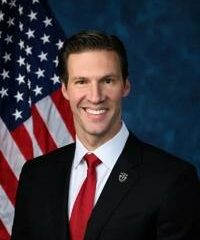Kaiser Health News
Colorado Dropped Medicaid Enrollees as Red States Have, Alarming Advocates for the Poor
Rae Ellen Bichell
Thu, 11 Jul 2024 09:00:00 +0000
Colorado stands out among the 10 states that have disenrolled the highest share of Medicaid beneficiaries since the U.S. government lifted a pandemic-era restriction on removing people from the health insurance program.
It’s the only blue state in a cluster of red states with high disenrollment rates — a group that includes Idaho, Montana, Texas, and Utah — in the Medicaid “unwinding” underway since spring 2023.
Colorado also is the only state that had all the policy ingredients in place to cushion the fallout from the unwinding, according to Medicaid policy analysts at KFF.
But it seems the cushion hasn’t been deployed.
“There’s really a divide in Colorado between our progressive policies and our underfunded and fragmented administration,” said Bethany Pray, chief legal and policy officer at the Colorado Center on Law and Policy, a Denver-based legal aid group.
According to KFF data, during the unwinding Colorado has seen a bigger net drop in enrollment in Medicaid and the Children’s Health Insurance Program than any state except Utah.
Advocates for health care access, researchers, and county administrators — the administrators handling the bulk of the Medicaid redeterminations in Colorado — say that the major issues involve outdated technology and low rates of automatic renewals. Both create obstacles to enrollment that undercut the state’s progressive policies.
State officials have a rosier view. They say the drop in enrollment is a sign that they did a good job enrolling people at the height of the covid-19 pandemic. Secondly, they say Colorado’s economy is doing well, so more people can get insurance through their jobs.
“When we have a really stellar unemployment rate, not as many people need safety-net programs, and we’re proud of that. Our people are rising and thriving,” said Kim Bimestefer, who leads the Department of Health Care Policy and Financing and is the state’s top Medicaid official. Her department has also said that some people choose not to fill out their eligibility paperwork because they know their incomes are too high to qualify.
Bureau of Labor Statistics data shows that while it’s true Colorado’s unemployment rate is lower than the nation’s as a whole, it’s higher than it was before the pandemic.
State officials say they believe Medicaid enrollments dropped because many of those people found jobs, as reflected by the lower unemployment rates. But that scenario happened in fewer than half of the state’s counties, a KFF Health News analysis found. Notably, in 11 counties where unemployment stagnated or increased from January 2020 to April 2024, the share of the population covered by Medicaid shrank. A low unemployment rate does not necessarily mean there is less of a need for Medicaid coverage, because many employed people earn wages low enough to still qualify for the program.
Colorado increased enrollment in Medicaid and the related Children’s Health Insurance Program by 35% during the covid public health emergency, compared with about 30% nationally and among Medicaid expansion states.
“We grew more, which means, logically, we’re going to disenroll more,” said Bimestefer.“We went up higher, we’re going to come down lower, because our economy is stellar.”
Her department’s website initially claimed Colorado’s Medicaid enrollment grew more than any other Medicaid expansion state except Hawaii. But data from the Centers for Medicare & Medicaid Services shows pandemic enrollment growth in other states, including Indiana, North Dakota, Virginia, and Nevada, also exceeded that of Colorado.
Even if it had grown the most, the argument that what comes up must come down doesn’t hold water, Medicaid policy analysts said.
“A counterargument to that is we know that there was never a full participation in Medicaid prior to the pandemic,” said Jennifer Tolbert, deputy director of the KFF Program on Medicaid and the Uninsured.
Tolbert said she was surprised by the extent of Colorado’s Medicaid enrollment losses, given it was the one state in the nation that met all the criteria that KFF expected would cushion the effects of the unwinding. Those policies include adopting the Affordable Care Act’s Medicaid expansion and the automatic processing of renewals.
Tolbert was among several policy researchers who said that even if unemployment returned to pre-pandemic levels, they would expect a higher, not lower, share of Coloradans to be enrolled in safety-net coverage.
Ally Sullivan, a spokesperson for Gov. Jared Polis, a Democrat, said one complicating factor in Colorado’s system is that it’s among the handful of states where most of the eligibility verification work falls on counties, “which added complexity to the state’s unwind process.”
“Colorado is committed to ensuring that Coloradans who no longer qualify for Medicaid coverage are connected to other affordable sources of coverage as soon as possible, and the state is going to great lengths to do so,” the statement said.
Minnesota is another state where verifying eligibility is largely left to the counties. Yet it disenrolled just 26% of its Medicaid population in the unwinding, compared with Colorado’s 48%. Like Colorado, Minnesota is led by a Democratic governor. Minnesota also mirrors Colorado in its population, pandemic-era increase in enrollment, the percentage of its residents living in prosperous areas, and its better-than-national unemployment rate. But Bimestefer dismissed any comparison.
“I don’t care about Minnesota,” Bimestefer said. “This is Colorado. I don’t care what Minnesota did.”
Advocates for health care access and researchers said a cluster of technological and administrative issues have contributed to Colorado’s high disenrollment rate.
First, Colorado’s eligibility database, the Colorado Benefits Management System, is outdated and clunky, according to people who use it or are familiar with systems in other states.
“It’s like still using the old flip phone where you’re trying to play Snake,” said Sarah Grusin, an attorney at the National Health Law Program. “We have better stuff.”
Grusin and Pray’s organizations filed a civil rights complaint with several federal agencies saying that the system issues that terminated disabled Coloradans’ coverage amounted to discrimination.
“It took many months to fix something that doesn’t sound that complicated,” Pray said.
Bimestefer said her department is working on a plan to improve the system, which is managed by Deloitte under a $354.4 million contract that lasts until 2027. A recent KFF Health News investigation of eligibility systems managed by Deloitte found widespread problems. In Colorado, a state-commissioned audit in 2020 found that many Medicaid beneficiaries were sent incorrect notices and deadlines.
Kenneth Smith, a Deloitte executive who leads its national human services division, said that Deloitte is one player among many who together administer Medicaid benefits, and that the states own the technology and make the decisions about their implementation.
Colorado’s technology woes have also weakened its ability to use a powerful tool in enrollment: automatic renewal.
Last fall, Bimestefer said, her agency had to choose between fixing the system so that it would stop disenrolling children who shouldn’t lose coverage, or start automatically renewing people with no income or with income below the federal poverty level. It couldn’t do both, she said.
Experts such as Tricia Brooks, a research professor with the Center for Children and Families at Georgetown University, said it’s especially important to increase automatic renewals in states like Colorado where most of the renewal work falls on county government staff.
“What happens when you’re not getting a high rate of automated renewals? You’re sending out those renewal forms,” Brooks said — meaning more disenrollments. “They didn’t get the mail. The notice was confusing. They tried to get help through the call center. The list goes on as to why people don’t renew.”
Indeed, two-thirds of disenrolled Coloradans lost coverage for procedural reasons. That’s in line with the national average, according to KFF. But paired with Colorado having disenrolled so many people overall, that means more than 500,000 Coloradans, or about 9% of the state’s people, were disenrolled for procedural reasons — more than the population of its second-largest city, Colorado Springs.
At least a third of those disenrolled were later determined to be eligible for Medicaid.
Officials at Colorado community health centers and mental health centers say they’re seeing a rise in uninsured patients coming through their doors — a sign, they say, that Coloradans dropped from Medicaid aren’t necessarily moving on to greener health insurance pastures.
Fifty-eight percent of those who were disenrolled have returned to Medicaid, or now have another form of insurance. But the state doesn’t yet know what happened to the remaining 42% of people who were dropped and said it would conduct a survey to find out.
——————————
By: Rae Ellen Bichell
Title: Colorado Dropped Medicaid Enrollees as Red States Have, Alarming Advocates for the Poor
Sourced From: kffhealthnews.org/news/article/colorado-medicaid-unwinding-blue-red-states/
Published Date: Thu, 11 Jul 2024 09:00:00 +0000
Did you miss our previous article…
https://www.biloxinewsevents.com/a-bottomless-pit-how-out-of-pocket-tmj-costs-drive-patients-into-debt/
Kaiser Health News
US Judge Names Receiver To Take Over California Prisons’ Mental Health Program
SACRAMENTO, Calif. — A judge has initiated a federal court takeover of California’s troubled prison mental health system by naming the former head of the Federal Bureau of Prisons to serve as receiver, giving her four months to craft a plan to provide adequate care for tens of thousands of prisoners with serious mental illness.
Senior U.S. District Judge Kimberly Mueller issued her order March 19, identifying Colette Peters as the nominated receiver. Peters, who was Oregon’s first female corrections director and known as a reformer, ran the scandal-plagued federal prison system for 30 months until President Donald Trump took office in January. During her tenure, she closed a women’s prison in Dublin, east of Oakland, that had become known as the “rape club.”
Michael Bien, who represents prisoners with mental illness in the long-running prison lawsuit, said Peters is a good choice. Bien said Peters’ time in Oregon and Washington, D.C., showed that she “kind of buys into the fact that there are things we can do better in the American system.”
“We took strong objection to many things that happened under her tenure at the BOP, but I do think that this is a different job and she’s capable of doing it,” said Bien, whose firm also represents women who were housed at the shuttered federal women’s prison.
California corrections officials called Peters “highly qualified” in a statement, while Gov. Gavin Newsom’s office did not immediately comment. Mueller gave the parties until March 28 to show cause why Peters should not be appointed.
Peters is not talking to the media at this time, Bien said. The judge said Peters is to be paid $400,000 a year, prorated for the four-month period.
About 34,000 people incarcerated in California prisons have been diagnosed with serious mental illnesses, representing more than a third of California’s prison population, who face harm because of the state’s noncompliance, Mueller said.
Appointing a receiver is a rare step taken when federal judges feel they have exhausted other options. A receiver took control of Alabama’s correctional system in 1976, and they have otherwise been used to govern prisons and jails only about a dozen times, mostly to combat poor conditions caused by overcrowding. Attorneys representing inmates in Arizona have asked a judge to take over prison health care there.
Mueller’s appointment of a receiver comes nearly 20 years after a different federal judge seized control of California’s prison medical system and installed a receiver, currently J. Clark Kelso, with broad powers to hire, fire, and spend the state’s money.
California officials initially said in August that they would not oppose a receivership for the mental health program provided that the receiver was also Kelso, saying then that federal control “has successfully transformed medical care” in California prisons. But Kelso withdrew from consideration in September, as did two subsequent candidates. Kelso said he could not act “zealously and with fidelity as receiver in both cases.”
Both cases have been running for so long that they are now overseen by a second generation of judges. The original federal judges, in a legal battle that reached the U.S. Supreme Court, more than a decade ago forced California to significantly reduce prison crowding in a bid to improve medical and mental health care for incarcerated people.
State officials in court filings defended their improvements over the decades. Prisoners’ attorneys countered that treatment remains poor, as evidenced in part by the system’s record-high suicide rate, topping 31 suicides per 100,000 prisoners, nearly double that in federal prisons.
“More than a quarter of the 30 class-members who died by suicide in 2023 received inadequate care because of understaffing,” prisoners’ attorneys wrote in January, citing the prison system’s own analysis. One prisoner did not receive mental health appointments for seven months “before he hanged himself with a bedsheet.”
They argued that the November passage of a ballot measure increasing criminal penalties for some drug and theft crimes is likely to increase the prison population and worsen staffing shortages.
California officials argued in January that Mueller isn’t legally justified in appointing a receiver because “progress has been slow at times but it has not stalled.”
Mueller has countered that she had no choice but to appoint an outside professional to run the prisons’ mental health program, given officials’ intransigence even after she held top officials in contempt of court and levied fines topping $110 million in June. Those extreme actions, she said, only triggered more delays.
The 9th U.S. Circuit Court of Appeals on March 19 upheld Mueller’s contempt ruling but said she didn’t sufficiently justify calculating the fines by doubling the state’s monthly salary savings from understaffing prisons. It upheld the fines to the extent that they reflect the state’s actual salary savings but sent the case back to Mueller to justify any higher penalty.
Mueller had been set to begin additional civil contempt proceedings against state officials for their failure to meet two other court requirements: adequately staffing the prison system’s psychiatric inpatient program and improving suicide prevention measures. Those could bring additional fines topping tens of millions of dollars.
But she said her initial contempt order has not had the intended effect of compelling compliance. Mueller wrote as far back as July that additional contempt rulings would also be likely to be ineffective as state officials continued to appeal and seek delays, leading “to even more unending litigation, litigation, litigation.”
She went on to foreshadow her latest order naming a receiver in a preliminary order: “There is one step the court has taken great pains to avoid. But at this point,” Mueller wrote, “the court concludes the only way to achieve full compliance in this action is for the court to appoint its own receiver.”
This article was produced by KFF Health News, which publishes California Healthline, an editorially independent service of the California Health Care Foundation.
If you or someone you know may be experiencing a mental health crisis, contact the 988 Suicide & Crisis Lifeline by dialing or texting “988.”
The post US Judge Names Receiver To Take Over California Prisons’ Mental Health Program appeared first on kffhealthnews.org
Kaiser Health News
Amid Plummeting Diversity at Medical Schools, a Warning of DEI Crackdown’s ‘Chilling Effect’
The Trump administration’s crackdown on DEI programs could exacerbate an unexpectedly steep drop in diversity among medical school students, even in states like California, where public universities have been navigating bans on affirmative action for decades. Education and health experts warn that, ultimately, this could harm patient care.
Since taking office, President Donald Trump has issued a handful of executive orders aimed at terminating all diversity, equity, and inclusion, or DEI, initiatives in federally funded programs. And in his March 4 address to Congress, he described the Supreme Court’s 2023 decision banning the consideration of race in college and university admissions as “brave and very powerful.”
Last month, the Education Department’s Office for Civil Rights — which lost about 50% of its staff in mid-March — directed schools, including postsecondary institutions, to end race-based programs or risk losing federal funding. The “Dear Colleague” letter cited the Supreme Court’s decision.
Paulette Granberry Russell, president and CEO of the National Association of Diversity Officers in Higher Education, said that “every utterance of ‘diversity’ is now being viewed as a violation or considered unlawful or illegal.” Her organization filed a lawsuit challenging Trump’s anti-DEI executive orders.
While California and eight other states — Arizona, Florida, Idaho, Michigan, Nebraska, New Hampshire, Oklahoma, and Washington — had already implemented bans of varying degrees on race-based admissions policies well before the Supreme Court decision, schools bolstered diversity in their ranks with equity initiatives such as targeted scholarships, trainings, and recruitment programs.
But the court’s decision and the subsequent state-level backlash — 29 states have since introduced bills to curb diversity initiatives, according to data published by the Chronicle of Higher Education — have tamped down these efforts and led to the recent declines in diversity numbers, education experts said.
After the Supreme Court’s ruling, the numbers of Black and Hispanic medical school enrollees fell by double-digit percentages in the 2024-25 school year compared with the previous year, according to the Association of American Medical Colleges. Black enrollees declined 11.6%, while the number of new students of Hispanic origin fell 10.8%. The decline in enrollment of American Indian or Alaska Native students was even more dramatic, at 22.1%. New Native Hawaiian or other Pacific Islander enrollment declined 4.3%.
“We knew this would happen,” said Norma Poll-Hunter, AAMC’s senior director of workforce diversity. “But it was double digits — much larger than what we anticipated.”
The fear among educators is the numbers will decline even more under the new administration.
At the end of February, the Education Department launched an online portal encouraging people to “report illegal discriminatory practices at institutions of learning,” stating that students should have “learning free of divisive ideologies and indoctrination.” The agency later issued a “Frequently Asked Questions” document about its new policies, clarifying that it was acceptable to observe events like Black History Month but warning schools that they “must consider whether any school programming discourages members of all races from attending.”
“It definitely has a chilling effect,” Poll-Hunter said. “There is a lot of fear that could cause institutions to limit their efforts.”
Numerous requests for comment from medical schools about the impact of the anti-DEI actions went unreturned. University presidents are staying mum on the issue to protect their institutions, according to reporting from The New York Times.
Utibe Essien, a physician and UCLA assistant professor, said he has heard from some students who fear they won’t be considered for admission under the new policies. Essien, who co-authored a study on the effect of affirmative action bans on medical schools, also said students are worried medical schools will not be as supportive toward students of color as in the past.
“Both of these fears have the risk of limiting the options of schools folks apply to and potentially those who consider medicine as an option at all,” Essien said, adding that the “lawsuits around equity policies and just the climate of anti-diversity have brought institutions to this place where they feel uncomfortable.”
In early February, the Pacific Legal Foundation filed a lawsuit against the University of California-San Francisco’s Benioff Children’s Hospital Oakland over an internship program designed to introduce “underrepresented minority high school students to health professions.”
Attorney Andrew Quinio filed the suit, which argues that its plaintiff, a white teenager, was not accepted to the program after disclosing in an interview that she identified as white.
“From a legal standpoint, the issue that comes about from all this is: How do you choose diversity without running afoul of the Constitution?” Quinio said. “For those who want diversity as a goal, it cannot be a goal that is achieved with discrimination.”
UC Health spokesperson Heather Harper declined to comment on the suit on behalf of the hospital system.
Another lawsuit filed in February accuses the University of California of favoring Black and Latino students over Asian American and white applicants in its undergraduate admissions. Specifically, the complaint states that UC officials pushed campuses to use a “holistic” approach to admissions and “move away from objective criteria towards more subjective assessments of the overall appeal of individual candidates.”
The scrutiny of that approach to admissions could threaten diversity at the UC-Davis School of Medicine, which for years has employed a “race-neutral, holistic admissions model” that reportedly tripled enrollment of Black, Latino, and Native American students.
“How do you define diversity? Does it now include the way we consider how someone’s lived experience may be influenced by how they grew up? The type of school, the income of their family? All of those are diversity,” said Granberry Russell, of the National Association of Diversity Officers in Higher Education. “What might they view as an unlawful proxy for diversity equity and inclusion? That’s what we’re confronted with.”
California Attorney General Rob Bonta, a Democrat, recently joined other state attorneys general to issue guidance urging that schools continue their DEI programs despite the federal messaging, saying that legal precedent allows for the activities. California is also among several states suing the administration over its deep cuts to the Education Department.
If the recent decline in diversity among newly enrolled students holds or gets worse, it could have long-term consequences for patient care, academic experts said, pointing toward the vast racial disparities in health outcomes in the U.S., particularly for Black people.
A higher proportion of Black primary care doctors is associated with longer life expectancy and lower mortality rates among Black people, according to a 2023 study published by the JAMA Network.
Physicians of color are also more likely to build their careers in medically underserved communities, studies have shown, which is increasingly important as the AAMC projects a shortage of up to 40,400 primary care doctors by 2036.
“The physician shortage persists, and it’s dire in rural communities,” Poll-Hunter said. “We know that diversity efforts are really about improving access for everyone. More diversity leads to greater access to care — everyone is benefiting from it.”
This article was produced by KFF Health News, which publishes California Healthline, an editorially independent service of the California Health Care Foundation.
The post Amid Plummeting Diversity at Medical Schools, a Warning of DEI Crackdown’s ‘Chilling Effect’ appeared first on kffhealthnews.org
Kaiser Health News
Tribal Health Leaders Say Medicaid Cuts Would Decimate Health Programs
As Congress mulls potentially massive cuts to federal Medicaid funding, health centers that serve Native American communities, such as the Oneida Community Health Center near Green Bay, Wisconsin, are bracing for catastrophe.
That’s because more than 40% of the about 15,000 patients the center serves are enrolled in Medicaid. Cuts to the program would be detrimental to those patients and the facility, said Debra Danforth, the director of the Oneida Comprehensive Health Division and a citizen of the Oneida Nation.
“It would be a tremendous hit,” she said.
The facility provides a range of services to most of the Oneida Nation’s 17,000 people, including ambulatory care, internal medicine, family practice, and obstetrics. The tribe is one of two in Wisconsin that have an “open-door policy,” Danforth said, which means that the facility is open to members of any federally recognized tribe.
But Danforth and many other tribal health officials say Medicaid cuts would cause service reductions at health facilities that serve Native Americans.
Indian Country has a unique relationship to Medicaid, because the program helps tribes cover chronic funding shortfalls from the Indian Health Service, the federal agency responsible for providing health care to Native Americans.
Medicaid has accounted for about two-thirds of third-party revenue for tribal health providers, creating financial stability and helping facilities pay operational costs. More than a million Native Americans enrolled in Medicaid or the closely related Children’s Health Insurance Program also rely on the insurance to pay for care outside of tribal health facilities without going into significant medical debt. Tribal leaders are calling on Congress to exempt tribes from cuts and are preparing to fight to preserve their access.
“Medicaid is one of the ways in which the federal government meets its trust and treaty obligations to provide health care to us,” said Liz Malerba, director of policy and legislative affairs for the United South and Eastern Tribes Sovereignty Protection Fund, a nonprofit policy advocacy organization for 33 tribes spanning from Texas to Maine. Malerba is a citizen of the Mohegan Tribe.
“So we view any disruption or cut to Medicaid as an abrogation of that responsibility,” she said.
Tribes face an arduous task in providing care to a population that experiences severe health disparities, a high incidence of chronic illness, and, at least in western states, a life expectancy of 64 years — the lowest of any demographic group in the U.S. Yet, in recent years, some tribes have expanded access to care for their communities by adding health services and providers, enabled in part by Medicaid reimbursements.
During the last two fiscal years, five urban Indian organizations in Montana saw funding growth of nearly $3 million, said Lisa James, director of development for the Montana Consortium for Urban Indian Health, during a webinar in February organized by the Georgetown University Center for Children and Families and the National Council of Urban Indian Health.
The increased revenue was “instrumental,” James said, allowing clinics in the state to add services that previously had not been available unless referred out for, including behavioral health services. Clinics were also able to expand operating hours and staffing.
Montana’s five urban Indian clinics, in Missoula, Helena, Butte, Great Falls, and Billings, serve 30,000 people, including some who are not Native American or enrolled in a tribe. The clinics provide a wide range of services, including primary care, dental care, disease prevention, health education, and substance use prevention.
James said Medicaid cuts would require Montana’s urban Indian health organizations to cut services and limit their ability to address health disparities.
American Indian and Alaska Native people under age 65 are more likely to be uninsured than white people under 65, but 30% rely on Medicaid compared with 15% of their white counterparts, according to KFF data for 2017 to 2021. More than 40% of American Indian and Alaska Native children are enrolled in Medicaid or CHIP, which provides health insurance to kids whose families are not eligible for Medicaid. KFF is a health information nonprofit that includes KFF Health News.
A Georgetown Center for Children and Families report from January found the share of residents enrolled in Medicaid was higher in counties with a significant Native American presence. The proportion on Medicaid in small-town or rural counties that are mostly within tribal statistical areas, tribal subdivisions, reservations, and other Native-designated lands was 28.7%, compared with 22.7% in other small-town or rural counties. About 50% of children in those Native areas were enrolled in Medicaid.
The federal government has already exempted tribes from some of Trump’s executive orders. In late February, Department of Health and Human Services acting general counsel Sean Keveney clarified that tribal health programs would not be affected by an executive order that diversity, equity, and inclusion government programs be terminated, but that the Indian Health Service is expected to discontinue diversity and inclusion hiring efforts established under an Obama-era rule.
HHS Secretary Robert F. Kennedy Jr. also rescinded the layoffs of more than 900 IHS employees in February just hours after they’d received termination notices. During Kennedy’s Senate confirmation hearings, he said he would appoint a Native American as an assistant HHS secretary. The National Indian Health Board, a Washington, D.C.-based nonprofit that advocates for tribes, in December endorsed elevating the director of the Indian Health Service to assistant secretary of HHS.
Jessica Schubel, a senior health care official in Joe Biden’s White House, said exemptions won’t be enough.
“Just because Native Americans are exempt doesn’t mean that they won’t feel the impact of cuts that are made throughout the rest of the program,” she said.
State leaders are also calling for federal Medicaid spending to be spared because cuts to the program would shift costs onto their budgets. Without sustained federal funding, which can cover more than 70% of costs, state lawmakers face decisions such as whether to change eligibility requirements to slim Medicaid rolls, which could cause some Native Americans to lose their health coverage.
Tribal leaders noted that state governments do not have the same responsibility to them as the federal government, yet they face large variations in how they interact with Medicaid depending on their state programs.
President Donald Trump has made seemingly conflicting statements about Medicaid cuts, saying in an interview on Fox News in February that Medicaid and Medicare wouldn’t be touched. In a social media post the same week, Trump expressed strong support for a House budget resolution that would likely require Medicaid cuts.
The budget proposal, which the House approved in late February, requires lawmakers to cut spending to offset tax breaks. The House Committee on Energy and Commerce, which oversees spending on Medicaid and Medicare, is instructed to slash $880 billion over the next decade. The possibility of cuts to the program that, together with CHIP, provides insurance to 79 million people has drawn opposition from national and state organizations.
The federal government reimburses IHS and tribal health facilities 100% of billed costs for American Indian and Alaska Native patients, shielding state budgets from the costs.
Because Medicaid is already a stopgap fix for Native American health programs, tribal leaders said it won’t be a matter of replacing the money but operating with less.
“When you’re talking about somewhere between 30% to 60% of a facility’s budget is made up by Medicaid dollars, that’s a very difficult hole to try and backfill,” said Winn Davis, congressional relations director for the National Indian Health Board.
Congress isn’t required to consult tribes during the budget process, Davis added. Only after changes are made by the Centers for Medicare & Medicaid Services and state agencies are tribes able to engage with them on implementation.
The amount the federal government spends funding the Native American health system is a much smaller portion of its budget than Medicaid. The IHS projected billing Medicaid about $1.3 billion this fiscal year, which represents less than half of 1% of overall federal spending on Medicaid.
“We are saving more lives,” Malerba said of the additional services Medicaid covers in tribal health care. “It brings us closer to a level of 21st century care that we should all have access to but don’t always.”
This article was published with the support of the Journalism & Women Symposium (JAWS) Health Journalism Fellowship, assisted by grants from The Commonwealth Fund.
KFF Health News is a national newsroom that produces in-depth journalism about health issues and is one of the core operating programs at KFF—an independent source of health policy research, polling, and journalism. Learn more about KFF.
USE OUR CONTENT
This story can be republished for free (details).
The post Tribal Health Leaders Say Medicaid Cuts Would Decimate Health Programs appeared first on kffhealthnews.org
-

 The Center Square7 days ago
The Center Square7 days agoCA fails audit of federal programs, 66% of COVID unemployment benefits in question | California
-

 News from the South - Alabama News Feed5 days ago
News from the South - Alabama News Feed5 days ago‘Hands Off!’ Protest Held in Huntsville Saturday | April 5, 2025 | News 19 @ 9 P.M.
-

 News from the South - Florida News Feed7 days ago
News from the South - Florida News Feed7 days agoFlorida student accused of punching deputy in the face
-

 News from the South - North Carolina News Feed7 days ago
News from the South - North Carolina News Feed7 days agoState appeals court finds merit in protests of nation’s last unsettled election | North Carolina
-

 News from the South - Florida News Feed6 days ago
News from the South - Florida News Feed6 days agoSouth Florida dad shares update on daughter severely burned in Molotov cocktail attack
-

 News from the South - Alabama News Feed6 days ago
News from the South - Alabama News Feed6 days agoFour people rescued, two taken to hospital after Birmingham apartment fire
-

 Mississippi Today7 days ago
Mississippi Today7 days agoMeet Willye B. White: A Mississippian we should all celebrate
-

 News from the South - North Carolina News Feed5 days ago
News from the South - North Carolina News Feed5 days agoProposal: American military base retailers would exclude 4 hostile nations | North Carolina














































